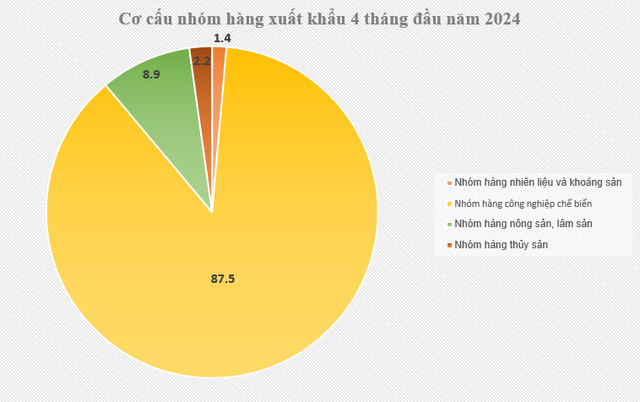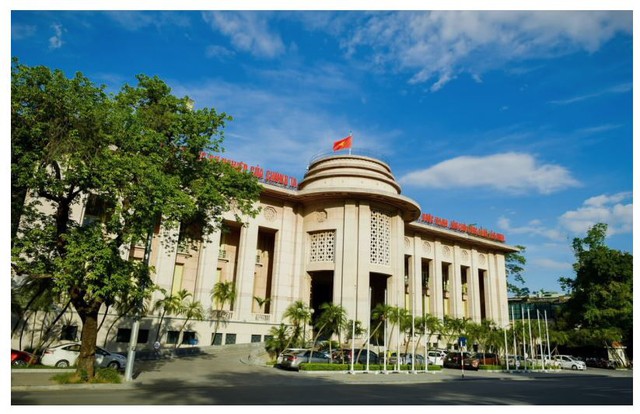In March, several new policies will take effect, such as regulations on high-tech zones, quality inspection of railway vehicles, fees for rare mineral exploitation licenses, and increased domestic airfare caps…
Many incentives and support for investment in high-tech zones
According to Decree No. 10/2024/NĐ-CP, which will take effect on March 25th, there are many incentives and support for investment in high-tech zones, such as: investment incentives and support for projects in high-tech zones; incentives for investment in the construction and operation of technical infrastructure; social infrastructure development policies for employees in high-tech zones; policies for high-tech research and development activities, high-tech business incubation, high-tech enterprise incubation, and high-tech workforce training…
Investment projects and activities in high-tech zones are given priority to participate in training and employment programs, support research and application of high technology, technology transfer, development of high-tech industries in agriculture, support innovation of innovative enterprises, small and medium-sized innovative enterprises, access to loans and other support programs from the Government, ministries, sectors, and localities.
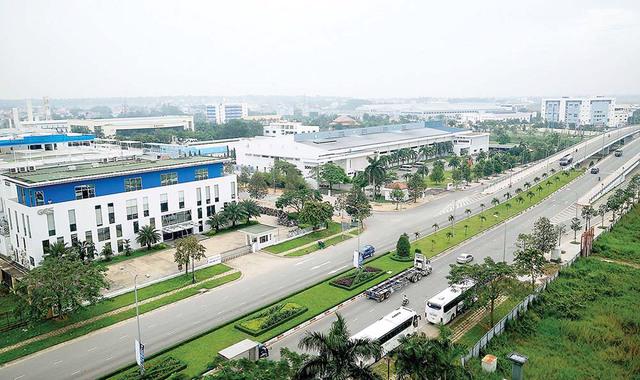
In addition, regarding the incentive mechanism for the construction and operation of technical infrastructure, the Decree specifies that the State encourages organizations and individuals with sufficient experience and capacity to participate in the investment, construction, and operation of the entire technical infrastructure system of high-tech zones or part of the technical infrastructure system of high-tech zones.
New regulations on specialized inspectorate agencies
On January 11th, 2024, the Government issued Decree No. 03/2024/NĐ-CP, which regulates specialized inspectorate agencies and the activities of the agencies entrusted with specialized inspection functions. The Decree details certain provisions of the Law on Inspection 2022, including: General Inspectorate, specialized Inspectorate established under the General Inspectorate, Inspectorate under Ministries; inspectorate of provinces… This Decree consists of 5 chapters, 46 articles, and will take effect from March 1st, 2024.
Amendment and supplementation of the Decree on restructuring, innovation, and development of agriculture and forestry companies
Decree No. 04/2024/NĐ-CP amends, supplements several articles of Decree No. 118/2014/NĐ-CP dated December 17th, 2014, of the Government on the restructuring, innovation, and development, and improvement of the efficiency of agricultural and forestry companies.
Decree 04/2024/NĐ-CP amends, supplements “Article 6. Transforming state-owned agriculture companies holding 100% charter capital into limited liability companies with two or more members.” The Decree shall be effective from March 1st, 2024.
Transfer of power plants as state assets to EVN
Decree No. 02/2024/NĐ-CP dated January 10th, 2024, on the transfer of power plants as state assets to the Vietnam Electricity Group (EVN). The Decree shall be effective from March 1st, 2024.
The Decree specifies that power plants transferred to the Vietnam Electricity Group must meet the following conditions: Comply with the power development plan, power network development plan, provincial plan at the time of construction or at the time of checking the actual conditions of the power plant for transfer; comply with relevant standards and regulations at the time of checking the actual conditions of the power plant for transfer; the power plant is in normal operation (used for power generation, transmission, distribution) at the time of checking the actual conditions of the power plant for transfer; the power plant is not subject to mortgage, pledge, guarantee or any other debt obligation.
Increase in the domestic airfare cap
The Ministry of Transport has issued Circular No. 34/2023/TT-BGTVT amending and supplementing certain provisions of Circular No. 17/2019/TT-BGTVT on the issued framework air transport service prices for domestic routes. Circular 34/2023/TT-BGTVT shall be effective from March 1st.
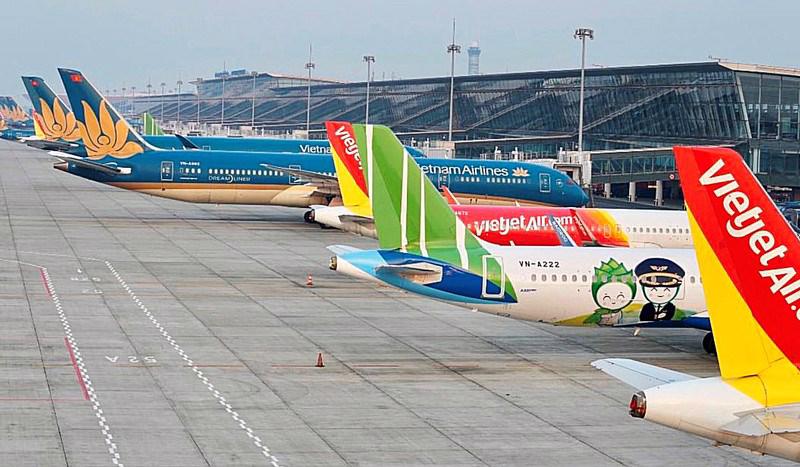
Accordingly, the Circular amends the framework price of economy class air transport services. Domestic routes with a distance of less than 500 km have a maximum price of 1.6 million VND per ticket per leg for economic and social development routes and 1.7 million VND per ticket per leg for other routes.
The remaining route groups will have an increased fare of 50,000 to 250,000 VND per ticket per leg compared to the previous regulations, depending on the distance of each route.
Specifically, routes from 500 km to less than 850 km have a maximum price of 2.25 million VND per ticket per leg (the previous price was 2.2 million VND per ticket per leg); routes with a distance from 850 km to less than 1,000 km have a maximum ticket price of 2.89 million VND per ticket per leg (the previous price was 2.79 million VND per ticket per leg); routes from 1,000 km to less than 1,280 km have a maximum price of 3.4 million VND per ticket per leg (the previous price was 3.2 million VND per ticket per leg), and routes with a distance of 1,280 km or more have a maximum price of 4 million VND per ticket per leg (the previous price was 3.75 million VND per ticket per leg).
The maximum price includes all passenger fees for an airfare, excluding value-added tax and other surcharges for airports (including passenger service fees, passenger and luggage security fees, additional service fees).
New regulations on railway vehicle quality inspection
On January 26th, 2024, the Ministry of Transport issued Circular 01/2024/TT-BGTVT which regulates the safety and technical quality inspection and environmental protection of railway transportation vehicles.
According to the Circular, the types of quality and safety inspections include: production inspection, import inspection, transformation inspection, and periodic inspections.

The Circular also states that the vehicle owner and operator are responsible for inspecting the operating condition of the vehicle to ensure its safety and environmental quality before participating in transportation. They are also responsible for repairing and maintaining the technical standards of the vehicle in between inspection periods.
This Circular shall be effective from March 15th, 2024.
Fees for rare mineral exploitation licenses
The Ministry of Finance has issued Circular No. 10/2024/TT-BTC dated February 5th, 2024, which regulates the collection, regime of collection, payment, management, and use of fees for reserves assessment and evaluation of mineral resources and fees for mineral mining licenses. This Circular shall be effective from March 21st, 2024.
The fee payer is an organization or individual authorized by the competent State agency to issue mining licenses according to the regulations on mineral resources.
The fee payer is an organization or individual who submits a request for approval of reserves assessment of mineral resources to the competent State management agency for assessment and approval of reserves report for mineral exploration in accordance with the regulations on mineral resources.
The fee-collecting organization is the State agency authorized to issue mining licenses according to the regulations on mineral resources. The fee-collecting organization is the State agency authorized to assess and approve the reserves report for mineral exploration according to the regulations.
The fee for mineral exploration licenses is as follows: Exploration area less than 100 hectares: 4 million VND per license. Exploration area from 100 hectares to 50,000 hectares: 10 million VND per license. Exploration area over 50,000 hectares: 15 million VND per license.
The fee for mineral mining licenses is as follows: License for mining sand and gravel in riverbeds with an exploitation capacity of less than 5,000 m3/year: 1 million VND per license; exploitation capacity from 5,000 m3 to 10,000 m3/year: 10 million VND per license; exploitation capacity over 10,000 m3/year: 15 million VND per license.
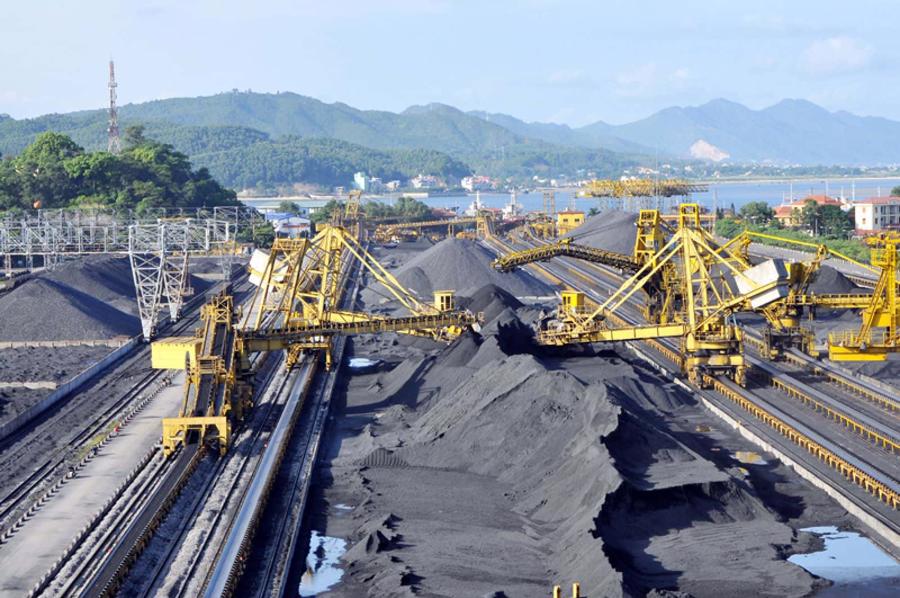
License for mining ordinary construction materials with an area of less than 10 hectares and an exploitation capacity of less than 100,000 m3/year: 15 million VND per license; rare mineral mining license: 80 million VND per license; special and hazardous mineral mining license: 100 million VND per license.
Fees for the extraction and use of geological and mineral resources documents
The Ministry of Finance has also issued Circular No. 11/2024/TT-BTC dated February 5th, 2024, which regulates the collection, regime of collection, payment, management, and use of fees for the extraction and use of geological and mineral resources documents. This Circular shall be effective from March 21st, 2024.
The fee-collecting organization is the competent authority that provides geological and mineral resources documents according to the regulations on natural resources, marine, and island environment.
The fee payer is the organization or individual who pays the fee when receiving the geological and mineral resources documents from the organization providing geological and mineral resources documents; fee payment to the fee-collecting organization according to the regulations in Circular No. 74/2022/TT-BTC of the Minister of Finance.
The fee-collecting organization shall retain 60% of the collected fee to cover the costs of providing services and collecting fees as stipulated in item 4, Article 1 of Decree No. 82/2023/NĐ-CP of the Government amending and supplementing several articles of Decree No. 120/2016/NĐ-CP detailing and guiding the implementation of certain articles of the Law on Fees and Charges, and remit 40% of the collected fee to the state budget.
In case the fee-collecting organization is a state agency not subject to the cost coverage from the fee collection specified in item 3, Article 1 of Decree No. 82/2023/NĐ-CP, the entire fee collected shall be remitted to the state budget. The sources of expenses for providing services and collecting fees by the fee-collecting organization shall be allocated in the state budget estimates according to the regulations of the law.
Fees for granting marine submersible licenses
The Ministry of Finance also issued Circular No. 8/2024/TT-BTC dated February 5th, 2024, which regulates the collection, regime of collection, payment of fees for granting marine submersible licenses. This Circular shall be effective from March 21st, 2024.
This Circular stipulates the collection of fees for granting, reissuing, extension, amendment, and supplementation of marine submersible licenses.
The fee-collecting organization is the competent authority to grant, reissue, extend, amend, and supplement marine submersible licenses according to the regulations on marine and island resources and environment.
The fee-collecting organization shall remit 100% of the collected fee to the state budget. The sources of expenses for fee collection by the fee-collecting organization shall be allocated in the state budget estimates according to the regulations of the law. The fee-collecting organization shall declare, collect, and remit fees according to the regulations in Circular No. 74/2022/TT-BTC
Regulations on personal documents when carrying out administrative procedures in the establishment and operation of banks
The State Bank of Vietnam issued Circular No. 24/2023/TT-NHNN amending and supplementing some articles of the Circulars related to the submission, presentation, provision of information, personal documents on population when performing administrative procedures in the field of establishment and operation of banks. Circular No. 24/2023/TT-NHNN shall be effective from March 1st, 2024.
The Circular is applied to commercial banks, cooperative banks, people’s credit funds, microfinance organizations, non-bank credit institutions, and branches of foreign banks.
Accordingly, it amends, supplements, replaces, or abolishes certain terms to ensure compliance with the provisions of Decree No. 104/2022/NĐ-CP dated December 21st, 2022, and related decrees on the submission, presentation of residency books, temporary residence books when carrying out administrative procedures to provide public services and the Plan to simplify administrative procedures related to population management within the scope of functions managed by the State Bank of Vietnam issued together with Resolution No. 59/NQ-CP dated July 4th, 2017, of the Government.
It also ensures compliance with the Prime Minister’s directions in the Scheme for developing data applications on population, identification, and electronic authentication to serve the national digital transformation period 2022-2025, vision to 2030, issued together with Decision No. 06/QĐ-TTg dated January 6th, 2022.
According to the principle of not requiring the re-declaration of personal information fields already available in the national database on population, it ensures compliance with the Prime Minister’s and the Government’s directions on simplifying administrative procedures, citizens’ papers related to population management, the use of the national database on population to serve the execution of administrative procedures in the electronic environment and socio-economic development.
Responsibilities in state management of labor in industrial zones, economic zones
On December 29th, 2023, the Minister of Labor, Invalids, and Social Affairs issued Circular No. 17/2023/TT-BLĐTBXH providing guidance on the delegation of authority in the implementation of state management tasks on labor in industrial zones and economic zones. It specifically defines the responsibilities of provincial People’s Committees, Industrial Zone Authorities, and Departments of Labor, Invalids, and Social Affairs in the state management tasks on labor in industrial zones and economic zones.
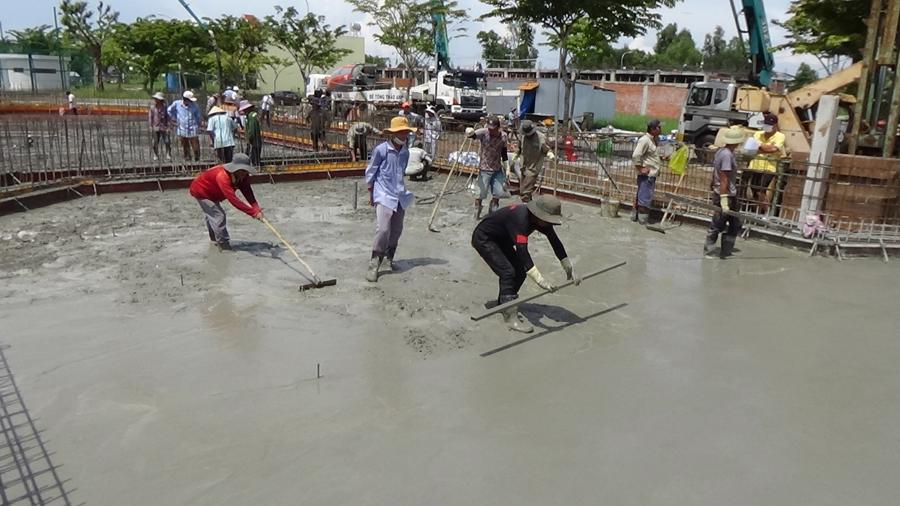
Accordingly, the responsibilities of provincial People’s Committees in the state management of labor in industrial zones and economic zones are as follows: Organizing the implementation of the delegated contents on labor in industrial zones according to the provisions of this Circular. Directing, guiding, and inspecting the Industrial Zone Authorities in the implementation of state management tasks on labor in industrial zones that have been delegated. Receiving and resolving recommendations and difficulties of enterprises related to the implementation of the delegated tasks.
Annually, compile and report on the implementation of the delegation to the Industrial Zone Authorities in the province to be sent to the Ministry of Labor, Invalids, and Social Affairs (via the Department of Legal Affairs) before January 30th of the following year according to the form attached to this Circular.
Regarding the responsibility of the Industrial Zone Authorities: Directly carry out the delegated tasks in accordance with the content assigned, ensuring the effective state management of labor in industrial zones. Be responsible to the delegated agency and the law for the implementation of the delegation. Notify the content of state management of labor that has been delegated to all enterprises in the industrial zone; guide enterprises to correctly implement the provisions of labor law for the delegated tasks…
Regarding the responsibility of the Department of Labor, Invalids, and Social Affairs: Advise and assist the provincial People’s Committees in compiling and reporting on the implementation of state management of labor in industrial zones in the province: Take charge, coordinate with the Industrial Zone Authorities in the compilation, reporting of the implementation of state management of labor in industrial zones and the compilation, general report on the situation of state management of labor throughout the province; Coordinate with the Industrial Zone Authorities to resolve recommendations and difficulties of enterprises related to the implementation of the delegated tasks of labor management in industrial zones.
Circular No. 17/2023/TT-BLĐTBXH shall be effective from March 1st, 2024.
National standards for higher education institutions
The Ministry of Education and Training issued Circular No. 01/2024/TT-BGDĐT regulating the national standards for higher education institutions. This Circular shall be effective from March 22nd and repeal Circular No. 24/2015/TT-BGDĐT of the Minister of Education and Training on national standards for higher education institutions.
The standards of higher education institutions are a basis for implementing the planning, organizing the network of higher education institutions, evaluating and supervising the conditions for ensuring quality, and implementing accountability of higher education institutions according to the regulations of the law.
The standards for higher education institutions include 6 criteria with 20 indicators. Specifically, Criterion 1: Organization and administration consisting of 4 criteria; Criterion 2: Lecturers consisting of 3 criteria; Criterion 3: Facilities consisting of 4 criteria; Criterion 4: Finance consisting of 2 criteria; Criterion 5: Enrollment and training consisting of 5 criteria; Criterion 6: Research and innovation consisting of 2 criteria.
The Ministry of Education and Training will guide higher education institutions to provide and update data to determine the indicators and evaluate the extent of compliance with the criteria of the national standards in the higher education database system.
Annually, announce the results of implementing the national standards of higher education institutions to all higher education institutions before June 30th, starting from 2025 for reporting the previous contiguous year.










